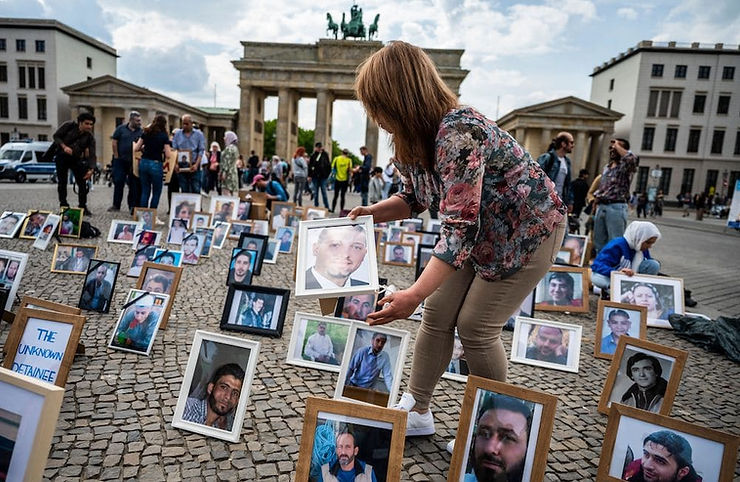By: Coco Xu
The United Nations General Assembly voted June 29 to form a new independent institution to search for missing people in Syria on a vote of 83 to 11 with 62 abstentions.
Since the beginning of Syrian uprisings against President Bashar Assad in 2011, at least 130,000 people have gone missing. Some are believed to be in custody of the Assad regime, while others have been buried in mass cemeteries found in both government- and opposition-occupied areas.
In 2013, Syrian soldiers stormed into the house of Umm Mohammad and her husband during breakfast. The couple had previously taken part in anti-regime protests.
“They beat him up in front of my young daughter” and then took him away, said Umm Mohammad, or “mother of Mohammad,” the name of her oldest son. She did not disclose her real name lest Syrian authorities harm her husband if he is still alive.
Among the backers of the resolution were the United States and its western allies. Syria and its allies Russia, China, and Iran voted against the move. Arab nations that had recently restored ties with Syria, except Assad regime critics like Qatar and Kuwait, who supported the legislation, abstained to avoid stirring up tension.
The resolution gives U.N. officials three months to set up the institution and recruit members. In order to locate the missing Syrians, the institution will gather intel from families, Syrian civil society organizations, whistleblowers, U.N. agencies, and inquiries to the Syrian government and opposition officials.
In recent years, whistleblowers have provided some information, including the “Caesar photos,” a collection of 53,000 pictures taken in Syrian prisons and hospitals that show detainees bearing scars of torture. The photos have allowed some families to identify relatives. They have also helped European officials convict former Syrian officers seeking asylum in European countries who participated in disappearances and torture.
Syria is not the only nation struggling with an internal conflict and missing people. In Lebanon, relatives of over 17,000 people kidnapped by militias during its 1975-90 civil war are dying of old age and have yet to learn the whereabouts of their loved ones. Despite prisoner swaps by Saudi Arabia and Iran-backed Houthis in Yemen, hundreds of people are still said to be missing.
The creation of the new institution “might set a precedent for addressing the suffering of different people in different parts of the world,” said Wafa Mustafa, whose father, Ali, disappeared in Damascus in 2013. She and her father had participated in protests against the regime.
“A lot should be happening, a lot should be done in parallel to this institution,” Mustafa said.
Umm Mohammad is less hopeful about obtaining information about her husband.
“What’s he going say?” she asked. “











